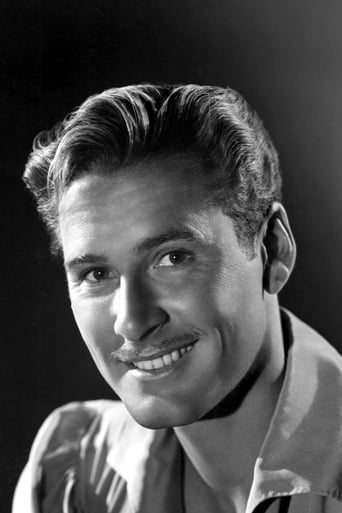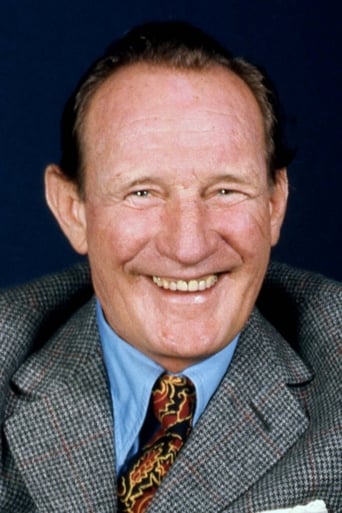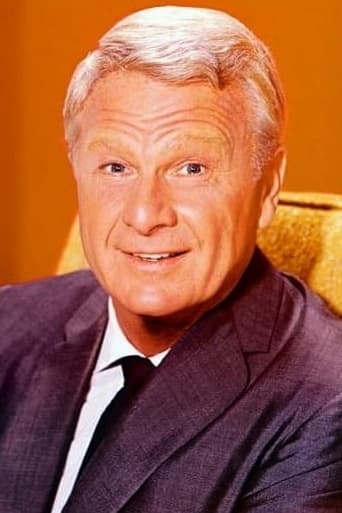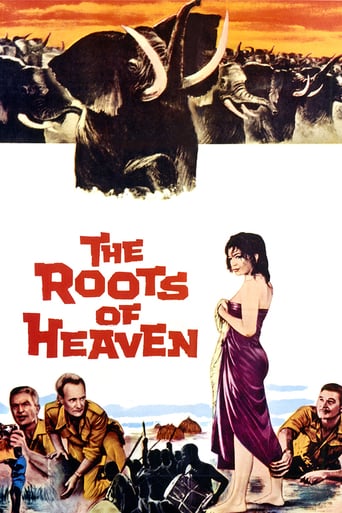
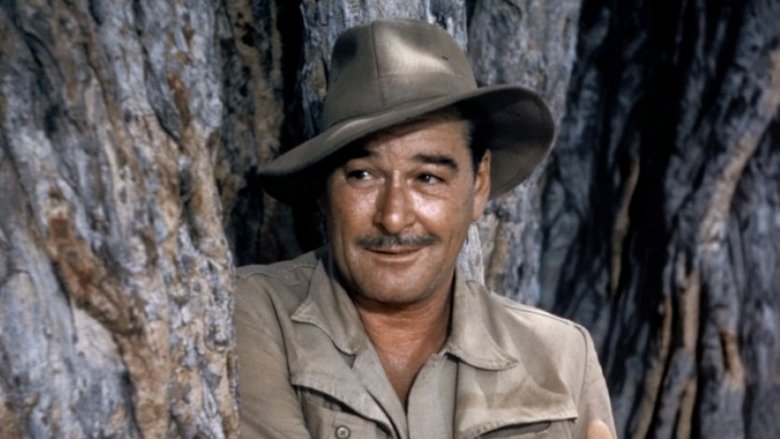
The Roots of Heaven (1958)
In Fort Lamy, French Equitorial Africa, idealist Morel launches a one-man campaign to preserve the African elephant from extinction, which he sees as the last remaining "roots of Heaven." At first, he finds only support from Minna, hostess of the town's only night club, who is in love with him, and a derelict ex-British Army Major, Forsythe. His crusade gains momentum and he is soon surrounded by an odd assortment of characters: Cy Sedgewick, an American TV commentator who becomes impressed and rallies world-wide support; a U.S. photographer, Abe Fields, who is sent to do a picture story on Morel and stays on to follow his ideals; Saint Denis, a government aide ordered to stop Morel; Orsini, a professional ivory hunter whose vested interests aren't the same as Morel's; and Waitari, leader of a Pan-African movement who follows Morel only for the personal good it will do his own campaign.
Watch Trailer
Cast
Reviews
Am i the only one who thinks........Average?
After playing with our expectations, this turns out to be a very different sort of film.
It’s fine. It's literally the definition of a fine movie. You’ve seen it before, you know every beat and outcome before the characters even do. Only question is how much escapism you’re looking for.
All of these films share one commonality, that being a kind of emotional center that humanizes a cast of monsters.
Adaptation of Romain Gary's 1956 novel by the author and Patrick Leigh-Fermor has a British environmentalist in French Equatorial Africa fighting the slaughter of elephants by ivory poachers for their tusks. He amusedly shoots a bragging broadcaster (Orson Welles, in a colorful cameo) in the rear-end with buckshot, he has a society shark publicly humiliated...but when the mercenaries get serious, so must he, accumulating his own small army and becoming a guerrilla fighter for the elephants' cause. Something of a surprise coming from director and real-life big game hunter John Huston, who opens his film with lugubrious character introductions that do little for the audience; however, once the preliminaries are out of the way, the handsomely-produced picture becomes an engrossing dramatic story of a (possibly unintended) martyr sharing and expanding his cause while taking it the ultimate distance--death before dishonor. Trevor Howard is excellent in the central role, supporting performances from Juliette Greco as a loving bar hostess, Errol Flynn as a hard-drinking military officer and Eddie Albert as an opportunistic photojournalist are equally good. Huston's sense of humor (droll at times, acerbic at others) is welcomed, while the finale catches one off-guard with its deeply-felt emotion. This appears to have been a rigorous film for all involved to make, but Huston's heart is in it, and he does amazing work. **1/2 from ****
Good film that had several inconvenient and misfortunes , as the cast and crew suffered temperatures would routinely reach 134 degrees in the day and 95 degrees at night , as the 130 people had 920 sick calls during the shooting . This is an exciting story about Morel's adventures who accompanied by a motley group carry out a real denounce against the massacre of the elephants . Morel lives in Africa and can not stand quiet on this slaughter and he , then , undertakes a dangerous travel on protection of elephants . Morel (Trevor Howard , though James Mason was considered for the role , also William Holden was originally cast with top billing ; however, he later pulled out and was replaced) starts to fight to prohibit this hunt . As he begins , nobody supports him , but thanks to an American Radio newsreader called Sedgwick (Orson Welles , his foe was normally $15,000 but he did it gratis in order to repay Darryl F. Zanuck for helping Welles find the funds to complete Otelo) he becomes a famous person . Some people come to help him , such as : the drunk Forsythe (Errol Flynn , who was then given top billing, even though Howard had the lead role, this was Errol Flynn's last major film before his death the following year others try to use him) , the magazine photographer Abe Fields (Eddie Albert , who developed an almost fatal case of sunstroke) and his lover Minna (Juliette Gréco) , among others . This thought-provoking as well as interesting adventure movie contains a real condemnation of violence and intolerance in which an agreeable character attempts to awake the world's consciousness , being interspersed with a lot of political issues in those times of the French/British colonialism in Africa . It's a story of losers , brave and valiant roles , mixed with revolutionary interests . Nice acting by Trevor Howard as a man committed to nature and especially against indiscriminate ivory trade , determined at whatever cost to avoid the killing of elephants taking place in a French colony . In addition , the strange beauty Juliette Greco , French singer and actress , ¨Protegee¨ of Darryl F. Zanuck, who put her in a number of films in the late 50s-early 60s . Remaining cast is generally quite good , giving fantastic jobs , plenty of great actors who suffered from the heat , malaria and other tropical diseases , as temperatures during filming reached over 130 degrees in the daytime and only got down to 95 at night . As terrible heat and sickness took their toll on the cast and crew . There stand out the followings : Eddie Albert , Paul Lukas , Herbert Lom , Grégoire Aslan , Jacques Marin , and , of course , Orson Welles included . However , Errol Flynn's alcoholism had become a round-the-clock problem, and he was frequently at odds with John Huston . In his autobiography titled ¨My Wicked, Wicked Ways", Errol Flynn wrote that he enjoyed making this film more than any other. Colorful photography in CinemaScope by Oswald Morris is spectacular and insurmountable , it was mostly made on location in Africa over five months , in the Belgian Congo and Tchad in the Northern Cameroons, where the elephants were located . As the cast and crew were in French Equatorial Africa for 6 months making the movie , and on some days it would be a four hour drive to the location and back , as they vowed never to return . It displays an emotive and sensitive musical score by the classic British composer Malcolm Arnold . The motion picture was well directed by John Huston , though he cited this film as an example of how some of the worst shoots can result in the worst films . Its tense filmmaking makes this crackerjack entertainment . The picture was made in a good time in the late 50s , 60s and 70s when Huston reappeared as a director of quality with The misfits (1961) , Freud (1962) , The List of Adrian Messenger (1963) , Fat City, (1972) , The man who would be king (1975) and Wise blood (1979). He ended his career on a high note with Under volcano (1984), Honor of Prizzi (1985) and Dublineses (1987) . Rating : 6.5/10 , this is an acceptable John Huston film , despite failing at box office , a model of his kind , definitely a must see if you are aficionado to adventure films
Errol Flynn's penultimate film is this overlong snoozer, directed by John Huston, about a man trying to stamp out elephant hunting in Africa. Despite being top-billed, Flynn isn't the lead. That role goes to Trevor Howard. The movie starts with Howard speechifying and there are many more speeches to come, from him and others. The script is little more than a series of speeches. Before you say "so what," keep in mind this movie is two hours long. The production was troubled, to put it politely. The reasons are many and other reviewers have covered them well. The cast looks impressive on paper but most of the name stars have small roles or cameos. Orson Welles is enjoyably hammy in that way he was so good at being. Errol Flynn looks absolutely horrible. I'm sure it will come as no surprise to anyone to discover he was inebriated constantly during filming. He would die the year after this was made. Juliette Greco, Darryl Zanuck's girlfriend at the time, is given the female lead role. Watching her, it's not surprising she didn't become a big star. She, too, is a victim of the horrible script. At one point her character goes on about how many men she has had to sleep with (or been raped by). What could have been an emotional, powerful scene in the hands of a better writer and actress is turned into a risible monologue ("The only thing really sticks in my memory is brass buckles of der belts."). Well-meaning but too long, too dull, and too pompous. The only positive is the location shooting, which is nice. One final note: during the filming of this movie about protecting elephants from poachers, John Huston went big-game hunting. I don't know whether to laugh or cry at that but I guess it goes to show Hollywood has been full of hypocrites since way back.
Spoilers. It's always convenient for scientists to treat the brains -- not to say the "minds" -- of animals as black boxes. We know what goes in ("stimuli") and we know what comes out ("responses") but we don't know what's inside. But anyone who has owned a pet knows that the black box has a good deal of personality inside it. (I once had the world's nastiest canary.) The study of animal consciousness is beginning to take form. Elephants in particular have curious traits that are difficult to interpret without being "anthropomorphic", a bad word in science. But Jeffrey Masson's "Why Elephants Cry" provides a good survey of their quirks. As described in this movie, one of the characters pumps shot after shot into an elephant before killing it. There was just such an historical event in which a hunter, having wounded an elephant and caused it to lean against a tree, put several deliberate bullets into it as an experiment, to see which one would most effectively bring it down. Observers noted that as the animal absorbed these shots he was weeping. They are curious indeed. They take care of their ill or disabled offspring. That much we can identify with. But when a group comes across a long-dead elephant carcass, thoroughly skeletonized, they get extremely excited and noisy, and they try to actually pick up the scattered bones and carry them away. And this we cannot understand -- not you, not me, and not ethologists. But we WILL go on killing them, and other "game" animals, for the most trivial of reasons -- trophies, money, folk medicine. Morrell, the idealist in this film, says of elephants that they are the largest land animals on earth, but nothing fears them, and they fear nothing. They eat only tender greens and are harmless. The movie makes Morrell and his followers look like loonies in the context of what was then French Equatorial Africa. And sometimes the movie makers turn him into a rabid visionary, the John Brown of the environmentalists. But he's right of course and the rest of Homo sapiens who do not recognize this are self-destructive fools. The movie doesn't come together as it should. The plot outlines are clear enough. Morrell is waging a lonely battle to save the beasts. Cheswick, a famous American hunter and journalist popularizes his cause. Morrell is then joined by other figures, some idealists and some exploiters who need the notoriety. A number of his valuable colleagues are killed in a shootout with ivory poachers. Morrell and the few survivors march off to carry on their fight. We don't find out what happens to them. And there is a girl, Juliet Greco, whose place in the narrative is uncertain. If we think about it, it seems as if Morrell may go on, but that his cause is lost, which means that the elephants lose as well. The director, John Huston, has inserted some welcome humor. A snobby boastful and very tall white huntress, Madame Orsini, gets thoroughly spanked on her bare bottom for having killed so many elephants. The funniest episode is Cheswick's visit. Orson Welles struts around his well-appointed African camp, that sonorous baritone more pompous than ever -- "Oh, it's dangerous," he tells the audience through his microphone, "and it's tough". (Here he grabs a bottle of Vat 69 scotch with his free hand.) "But I like the danger. I'd rather be here than in the crumbling ruins of Greece. Because here is where you stand face to face with the big ones. Yes, they're big alright." (Here, he bends over a table, exposing his broad-beamed rear, which then receives a blast of shotgun pellets.) The performances are pretty uniformly good. It's nice that Trevor Howard, as Morrell, wasn't chosen because of his prettiness but because his face has character. On the whole, despite the humor, and the open-ended final scene, designed to maintain hope, it's a sad movie. It's a shame that, in going about making their livings, human beings can't confine themselves to eating water lillies and green shoots.
